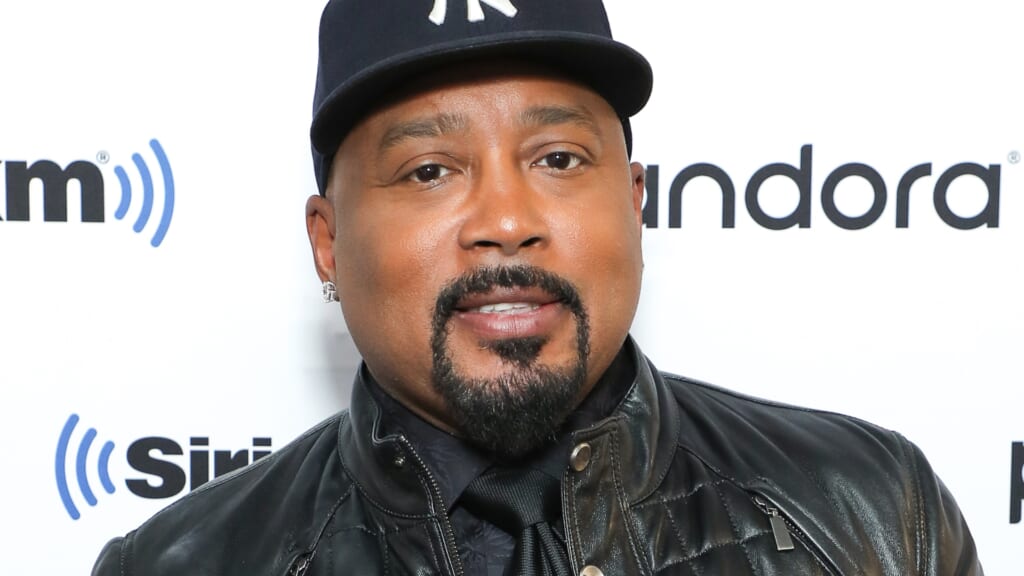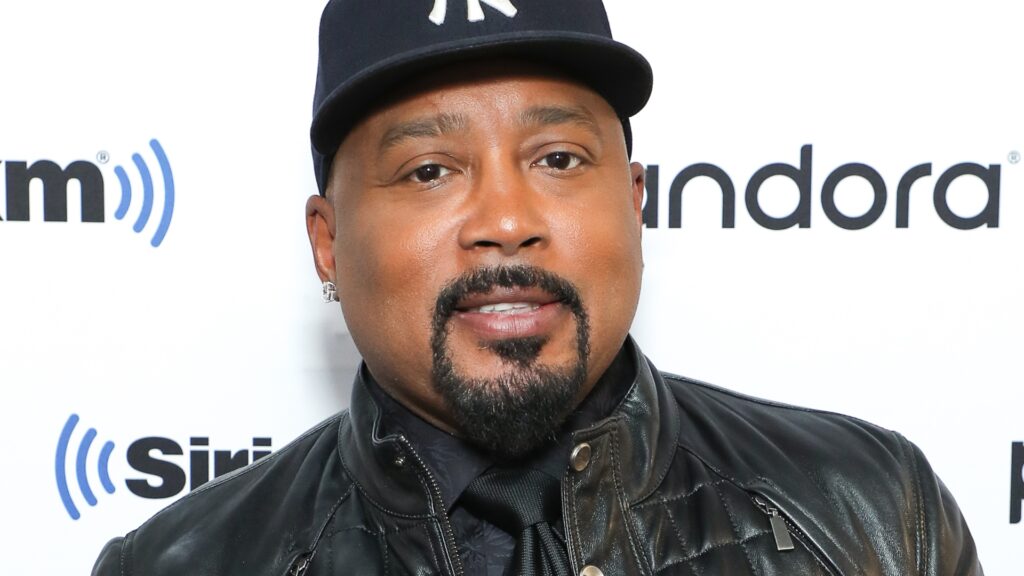Shark Tank’s Daymond John talks evolution of FUBU, importance of small Black businesses
The man who learned entrepreneurship from a candy shop owner is now serving as a bridge between banks and Black businesses
The coronavirus pandemic devastated both large and small businesses. In March 2020, stock prices plummeted for seemingly stable companies, and small businesses were forced to close their doors for what was supposedly two weeks. While it affected us all, a year later, Black businesses are still feeling the heavy impact.
According to a report by the New York Federal Reserve, Black-owned businesses were more than twice as likely to shutter as their white counterparts. Nearly half of Black small businesses had been wiped out by the end of April 2020 as the pandemic ravaged minority communities disproportionately. Shark Tank’s Daymond John partnered with Chase for Business on a virtual summit that was a blend of inspiration and networking. The businessman spoke with theGrio regarding the event, his advice for Black businesses, corporations, and consumers, as well as the evolution of FUBU.
John shares he partnered with Chase for Business because “they wanted to educate small businesses, minority businesses, Black businesses, and businesses of color about how to be successful, some of the barriers, the potholes to avoid, as well as all the help they have now.” The firm recently announced a $30 billion commitment to advancing racial equity.
According to an Associated Press analysis of the low-interest government loans, many minority business owners struggled more in comparison to their White counterparts to find banks and lenders that would accept their application. The analysis further revealed that White business owners were able to get loans earlier in the process, while minority business owners didn’t have loans accepted until the last few weeks of the program.

Read More: Vernon Jordan paved the way for Black leaders in business and politics
Still, John encourages Black business owners to keep trying and to seek other funding in addition to the PPP. He shares the story of a young entrepreneur he invested in via Shark Tank. “After I invested in him, he went off and raised another half a million dollars going to pitch competitions. He never stopped. That’s what Black business and any business owner should do. Especially now,” he explains.
However, it’s not just up to the business owners, there is a responsibility on corporations, consumers, and communities. John encourages corporate execs to take two specific actions: lead internal discussions with their employees and pay attention to where you source talent.
“Ask them [employees] what programs or what things they feel should be done internally so that as you come up with programs and things you want to do externally, it comes from within,” he says. Additionally, when looking for talent in your organization, source from HBCUs and smaller universities, in addition to top 10 schools.
Neglecting to have a diverse group of employees only hurts the company. In the late ’90s, The Gap ran an ad starring LL Cool J. John shares, “The Gap spent $30 million airing a FUBU ad basically because he said for us by us on the low…in a Gap commercial. Now, if The Gap had people who looked like LL or looked like me, that mistake would have never happened. But they didn’t have anybody in there to pull their coattails to what was happening. So it’s not only the right thing to do, it’s the smart thing to do.”
“For us by us” has grown from an idea in John’s basement with friends to a $300 million+ brand and has evolved into a movement. It’s a recognizable slogan by all and used amongst many groups. John explains, “It became popular due to our success and due to the movement it became an easy word to just throw out there. People understand it. People say, ‘This is the for us by us of my community,’ or ‘This is the for us by us of products,’ and I’m proud of it.”
John credits the small businesses and entrepreneurs that helped propel the company to what it is today. John reveals, “Big stores that would say crazy things to me like ‘Well there are four African-American males on the hangtag and they look like a gang so we don’t want shoot outs and shoplifting in our stores.’”

Read More: DoorDash announces $2M fund for BIPOC-owned businesses
He sarcastically adds, “Not that I have ever seen anybody get into a shootout because you got the last pair of 32s on the rack.” Instead, of focusing on big-box retailers, they went to small businesses. He reminisces, “You were looking for something new, that entrepreneur told you everything and told you the whole history on FUBU. They also reported back to us when we didn’t do something or made something too weird. They were like, ‘Hey that doesn’t work.’ They became our biggest ambassadors.”
It was the small businesses and their growth that served as a case study for large retailers, convincing them to carry the brand they previously ignored.
Small Black-owned businesses shuttering their doors doesn’t only affect our economy, it decimates our communities. John points out that “minority small business owners [are] not just business owners, their mentors in the community.” He expatiates, “they also bring other people up in the community. These people are the first step in other people finding success [that] may not have those resources.”
John first learned about entrepreneurship at 10 years old from working in a candy shop an African American veteran had owned for 20 years. He recollects, “That man knew the fundamentals of business. He knew about inflation, he knew about competition, changes in technology. He taught that stuff to me to end up being a guy on Shark Tank named Daymond John who hopefully will inspire other young kids.”
With a spending power surpassing $1 trillion a year, it’s imperative that Black consumers speak with their dollars. Buy Black isn’t something that only happens in February—it’s a year-long and lifelong commitment to keeping the Black dollar in the Black community. Share Black brands on your personal platforms and also with your non-Black friends. Be an ambassador for your favorite Black brands and help market and advertise for these entrepreneurs.
Quoting Jay-Z’s song “Entrepreneur,” John says, “For every one Gucci, support two FUBUs. If you wanna really support, support each other.” For Black businesses and people he emphasizes the importance of not giving up. “Whether you’re an intrapreneur or entrepreneur—take the shot. I just believe you just keep trying. You just keep taking that shot, and sooner or later, people will see the value of who you are.”
Have you subscribed to theGrio’s new podcast “Dear Culture”? Download our newest episodes now!
TheGrio is now on Apple TV, Amazon Fire, and Roku. Download theGrio today!
The post Shark Tank’s Daymond John talks evolution of FUBU, importance of small Black businesses appeared first on TheGrio.

